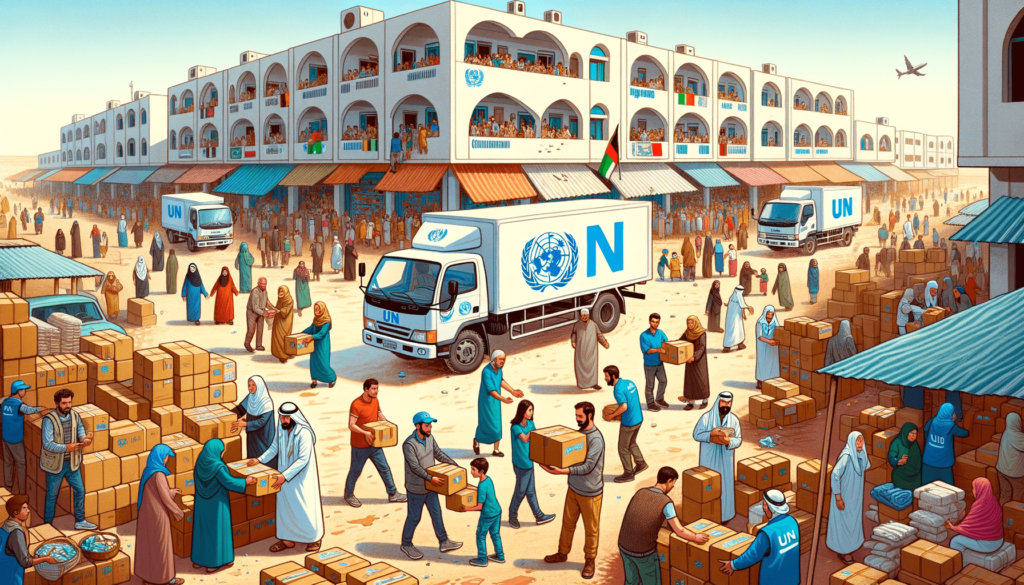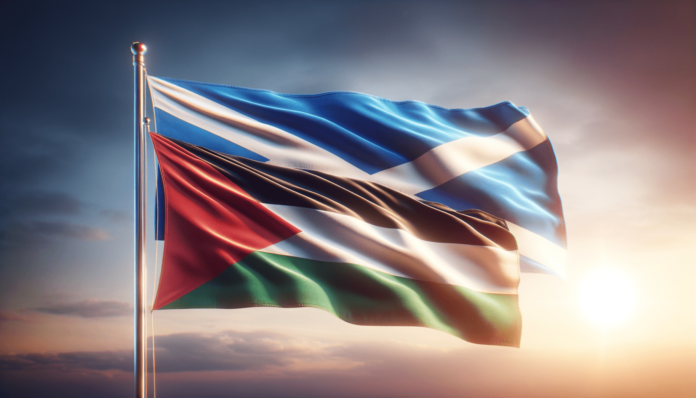Scotland and Ireland have reaffirmed their commitment to funding the United Nations Relief and Works Agency for Palestine Refugees (UNRWA), amidst global differences in response to funding for the agency.
Scotland’s Firm Stance
Scottish First Minister Humza Yousaf, in a statement on his X account, clarified the Scottish Government’s position:
To be clear, @scotgov has not paused or withdrawn aid to @UNRWA
— Humza Yousaf (@HumzaYousaf) January 28, 2024
We have previously provided as much as we can within our financial constraints.
We will always seek to do more where we can & urge others to continue to provide aid to the people of Gazahttps://t.co/VTu8RQUdiv
Clarifying Scotland’s Position
Contrary to some portrayals by other media channels, the Scottish Government has not aligned with the UK Government’s decision to pause funding to UNRWA.
The recent amendment of a BBC headline regarding Scotland’s funding to the United Nations Relief and Works Agency for Palestine Refugees (UNRWA) has brought into sharp focus the nuances in Scotland’s approach, contrasting it with that of the broader UK Government.
Initial Misconception and Clarification
The original BBC headline suggested a pause in Scotland’s aid to UNRWA, aligning it with the UK government’s decision to suspend funding. This portrayal was soon clarified as the headline was revised to “‘No plans’ for more Scottish aid to UN Gaza agency,” reflecting a more accurate representation of the Scottish Government’s position. While this change rectifies the initial misrepresentation, it introduces a subtly negative connotation regarding Scotland’s commitment to ‘funding’, hinting at a lack of future support rather than emphasising current financial limitations. Importantly, this revision does not sufficiently highlight Scotland’s continued support for UNRWA, nor does it clearly distinguish Scotland’s independent stance from that of the UK government.
Scotland’s Distinct Approach
The revised headline underscores a crucial distinction: while the UK Government has actively paused its funding to UNRWA, the Scottish Government, led by First Minister Humza Yousaf will continue to provide as much as Scotland can within financial constraints to aid UNRWA and help the people of Gaza.
Ireland’s Continued Support
Parallelly, Irish Foreign Minister Michael Martin underscored Ireland’s ongoing support for UNRWA. In his X post, Martin stated,
UNRWA’s 13,000 employees provide life saving assistance to 2.3m people and at incredible personal cost – with over 100 staff killed in last 4 months.
— Micheál Martin (@MichealMartinTD) January 27, 2024
🇮🇪 provided @UNRWA €18m in 2023 and will continue our support in 2024. (2/2)
- Thereby emphasising Ireland’s commitment to the humanitarian cause in Gaza.
Global Responses Vary
These affirmations come at a time when other nations, including UK (not including. Scotland), Italy, Finland, the United States, Australia, and Canada, have suspended or reconsidered their funding following allegations of UNRWA staff involvement in the October 7 attacks in Israel【Source】.
UNRWA’s Position

In response to these allegations, UNRWA has initiated an investigation and has severed ties with implicated staff members. UNRWA commissioner-general Philippe Lazzarini stated, “The Israeli authorities have provided UNRWA with information about the alleged involvement of several UNRWA employees in the horrific attacks on Israel on October 7”【Source】. This move signifies the agency’s commitment to maintaining its integrity and fulfilling its humanitarian mission.
These positions adopted by Scotland and Ireland stand out for their humanitarian focus amidst the crisis in Gaza. These decisions, set against a backdrop of varied international responses, suggest a deliberate choice by these nations to prioritise humanitarian aid in their foreign policy. While it’s not within journalistic purview to label any side as definitively ‘right’ or ‘wrong’ in historical terms, it is clear that Scotland and Ireland are making concerted efforts to align their actions with a deep awareness of the humanitarian implications at play today.


